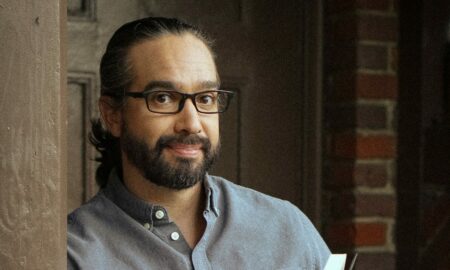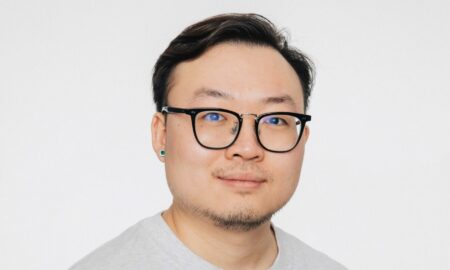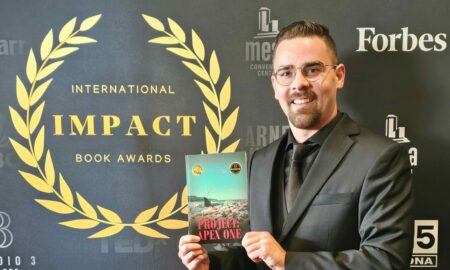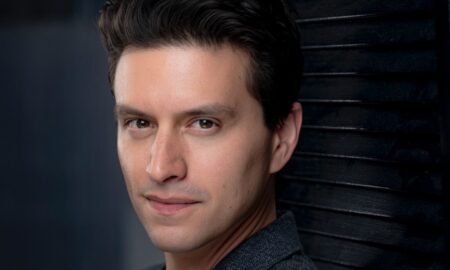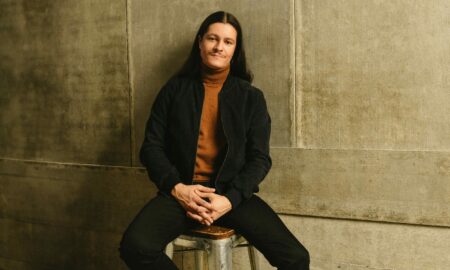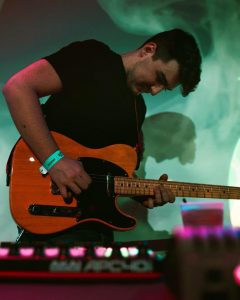
Today we’d like to introduce you to Mario ‘brompton’ Garraffo.
Mario, we appreciate you taking the time to share your story with us today. Where does your story begin?
I was born in London, UK, and grew up in Milan, Italy, which is where I began my musical journey. I started out playing classical piano and guitar in elementary school. Over time, I gravitated towards more modern genres, inspiring me to start learning blues, jazz, and rock guitar. This eventually led to the formation of my first band, “Fase Five”. Although Fase Five’s career was short-lived, the joy and overall energy of working in a collaborative musical environment encouraged me to start writing my first original songs. This chain of events actually became my motivation to pursue a career in music.
Fast forward to 2015, I made the decision to move to Philadelphia, PA, which is where my mom’s side of the family is from. It was only supposed to be a four months high school experience, but I loved it so much I decided to stay until my senior year. Even though my parents and siblings still lived in Italy, they kept on supporting me and my goals, which is something I will always be grateful for. During the second half of my junior year, I was in a school production called Mr. Harriton (which can be found here). It was a show where ten students showcased their talents and did embarrassing dances in all-white tuxedo’s to Backstreet Boys songs, it was a good time. This experience in the US opened me up to a whole new world of music, eventually inspiring me to go to Berklee College of Music in 2017.
When I first entered Berklee, I had no idea what I actually wanted to do in the music industry. All I knew was that I was a decent guitar player and that I loved making music. That all changed during my first semester. One day, my amazingly talented friend (and freshman year roommate) Michael Dunaief turned to me and said “hey, you wanna start an electronic music duo” to which I responded “yes, let’s do it”. Thus, “Lux Nova” was born. Even though I knew nothing about production and actually used to hate electronic music, I was super excited to get out of my comfort zone and try something new. By the end of our first semester, we released a 5-song EP called “New Light”. This phase of my college experience catapulted me into a whole new world of music. I learnt so much about production (especially about Ableton) just by sitting at the computer with Michael every day for weeks on end. Thanks to this, I decided to apply to the Electronic Production & Sound Design (EPD) major at Berklee (which I will be graduating from in May 2021). Due to this, I fell in love with electronic music and music production. I also started to meet so many people who I am now grateful to call friends and collaborators. In fact, in 2018, a very talented human and close friend named Lily Dowling (lis) came to me with a song she wrote called “Et Tu Brute”. I ended up producing it and we decided to release it as co-primary artists, prompting the launch of my solo artist project “MARS”.
Moving into 2020, things started to slow down due to COVID. I put off a couple of releases and a lot of gigs I had lined up got canceled. Towards the summer, however, Nell Jones and Ethan Udell (Ryder Management) reached out to me and we all started working together. Thanks to them and all their hard work and passion for music, I was able to get back on track and really start developing my artistry. After a couple of releases, we decided that a rebrand was necessary, mainly because the “MARS” artist page was almost impossible to find on Spotify. So, working closely with the distribution company United Masters, we launched “brompton”. I chose the name “brompton” because it was the street I lived on in London when I was a toddler. My first release under the new name is called Faded (with Eric Abel) and it’s out everywhere!
Anyways, this is how I got to where I am now. My collaborators, friends, and family inspire me to keep pushing every day!
Alright, so let’s dig a little deeper into the story – has it been an easy path overall and if not, what were the challenges you’ve had to overcome?
Making music is wonderful but I’d be lying if I said it has been a smooth road so far. I’m definitely grateful for all the opportunities and support my friends and family have provided, but building a career as an artist definitely has its ups and downs. One thing I constantly struggle with is comparing myself to other artists and their successes. I find that doing this is really demotivating and makes me feel that I’ll never be able to reach their standards. However, I’ve also found a way to counter this problem. Whenever I think about it I just remind myself that Leonard Cohen didn’t release “Hallelujah” until he was 50. That just goes to show how every artist has their own unique path and that anything is attainable if you just keep pushing.
Apart from the insecurities that come along with trying to be a musician, I’ve also struggled a lot with time management. Specifically within the sphere of creativity. I’ve found that forcing myself to be creative when I’m not feeling my best can actually be debilitating. I used to convince myself that I would only become better if I used all of my free time to write a new song or design a new sound for example. But over time, I actually realized that free time is something to be handled delicately. Now I always try and tell myself that if I’m not in a creative headspace, I shouldn’t force myself to be.
Appreciate you sharing that. What else should we know about what you do?
I love both production and songwriting! Of the two, I would say I mainly specialize in production. Although it sounds pretty grim, I find myself most comfortable and at peace behind my computer trying to come up with cool new sounds. My favorite part is the final stage of production. That is when I really try to find cool little musical fills or processing ideas that help develop the song into something unique. I believe that the first and last stages of production are the most important. For me, the first stage is all about building a solid sonic foundation for the track, while the last stage is all about finding ways to make the track stand out. I’d say, within my circle of friends and collaborators at least, I’m seen as the ‘bouncy’ guy. By that, I mean a solid four-on-the-floor kick drum with groovy melodies. Even though my main artistic genre leans more towards that type of ‘bouncy’ electronic music, I also enjoy producing other genres such as pop, rock, R&B, or hip-hop. In fact, I think this sets me apart as an artist. Technically speaking, every song I release is a different genre. For example, the last three songs I put out (Moved On, Faded, Memory Juices) are, respectively, R&B, House, and Hip-hop/rap. Although they may be different in style, I feel that they are sonically coherent enough to be recognizable. This idea of developing a common thread throughout various musical categories is what I’m most proud of.
What sort of changes are you expecting over the next 5-10 years?
As we’ve seen over the past couple of years with platforms like TikTok, the process of discovering new artists is constantly changing and, I believe, actually becoming faster. Surely, this has already seriously impacted the music industry. However, I think the shifts we’re seeing now are actually going to grow exponentially over the next 5 to 10 years.
Aside from social media and exposure, I think some of the biggest changes are going to be on the business and financial side of the industry. I’m already seeing crypto and NFTs become more prevalent in music. A lot of electronic artists are already taking advantage of NFTs by tying unreleased songs to digital works of art in an effort to promote their music and artistry. Some artists have even created their own crypto tokens (such as Wax Motif – $WAX, or RAC – $RAC). I think things like this are a precursor to the use of cryptocurrencies in the industry, even in major label settings. Due to the fact that crypto is so much faster and so much more fluid, it would allow artists, songwriters, or really anybody involved in the process to be paid their respective royalties almost instantly, rather than having to wait three to five days to go through banks. Anyways, although this isn’t something that would necessarily happen overnight, I think it will eventually have a significant impact on the music industry.
Contact Info:
- Email: [email protected]
- Website: https://bromptonbeats.com/
- Instagram: https://www.instagram.com/bromptonbeats/
- Facebook: https://www.facebook.com/bromptonbeats
- Youtube: https://www.youtube.com/channel/UCDnJvzX0-MqNVDC2-9MFFuw
- SoundCloud: https://soundcloud.com/bromptonbeats
- Other: https://open.spotify.com/artist/6ICrP7CEFDi4xglwy9d8lH?si=Ox5mD1x7QVynR-CmallmOQ





 Image Credits
Image Credits
Tino Clemente James Mckernan














